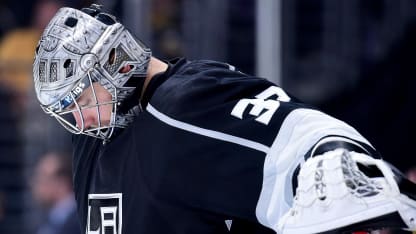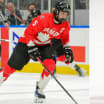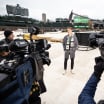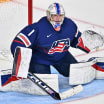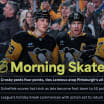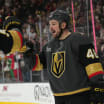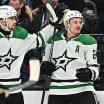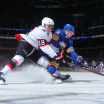3. Not so special:The Sharks won a pivotal Game 4, thanks to three power-play goals. They converted 23.8 percent of their extra-man chances and used their momentum to create offense after penalties expired.
Before the series began, the Kings said the key was to stay out of the penalty box. They said it again after Games 1, 2 and 4. They never heeded their own advice and often were forced to take penalties in order to prevent goals or disrupt San Jose's momentum.
But in many cases, their emotions got the best of them and they paid the price.
"It shouldn't be tough as long as we do it between the whistles," Doughty said before Game 5. "We should have no problems taking penalties. A lot of our penalties have been after the whistles and scrums and stuff like that, which we don't need and if we're playing physical, playing good defensive hockey and doing everything we can to not let them be in our zone and get shots on our goalie. We can play them between the rules with emotion."
4. Tarnished stars:Jonathan Quick was far from the Conn Smythe-winning goalie he was in 2012. In five games, he allowed 15 goals, tied for the most in the postseason. Kopitar and Jeff Carter had two goals each and Tyler Toffoli, a breakout player in the 2014 postseason, had none.
Meanwhile, Pavelski, the Sharks captain, scored five times. Logan Couture made big contributions as did Burns, who had three points in Game 5. When it mattered the most, San Jose's top players led while the Kings top players were still trying to get going.
"Plain and simple, we weren't hard enough on their top guys, on their 'D' or on their goaltender, and we weren't committed to the little things that it takes to win a playoff series," forward Milan Lucic said. "They blocked more shots than us, beared down on their opportunities more than we did, and that's why we came out on the losing end of things."
